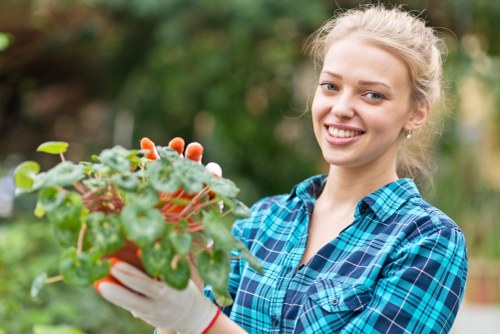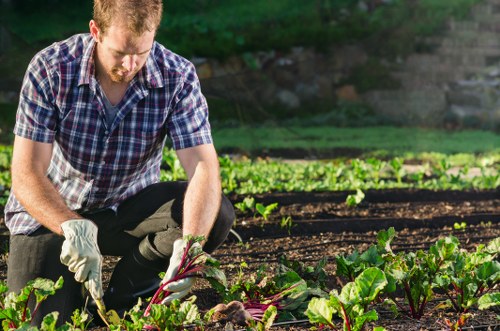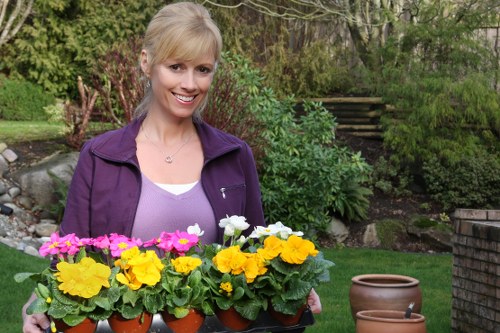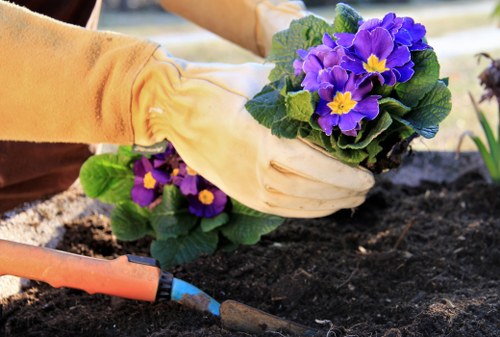Gardeners White City: A Comprehensive Guide to Urban Gardening

Introduction to Gardeners White City
White City, nestled in the heart of urban landscapes, has become a haven for gardening enthusiasts. Whether you’re a seasoned gardener or just starting out, Gardeners White City offers a plethora of resources, community support, and events to help your green thumb flourish.
The integration of green spaces in urban areas like White City not only enhances the aesthetic appeal but also promotes environmental sustainability. This article delves into the various aspects that make Gardeners White City a vibrant community for gardening lovers.
From community gardens and local events to expert tips and resources, discover how Gardeners White City can transform your gardening experience.

Community Gardens in White City
Community gardens are the backbone of Gardeners White City. These shared spaces provide residents with the opportunity to grow their own vegetables, flowers, and herbs while fostering a sense of community.
Participating in a community garden offers numerous benefits, including access to gardening tools, shared knowledge, and the chance to connect with fellow gardening enthusiasts. Whether you have a green thumb or are just learning, community gardens in White City cater to all skill levels.
Additionally, these gardens play a crucial role in promoting urban agriculture, contributing to local food security, and enhancing the overall quality of life in White City.

Local Gardening Events and Workshops
Gardeners White City organizes a variety of events and workshops throughout the year. These include planting workshops, sustainability seminars, and seasonal gardening fairs that provide valuable insights and hands-on experience.
Attending these events is a great way to expand your gardening knowledge, meet experts, and stay updated on the latest gardening trends. Whether you’re interested in organic gardening, landscape design, or simply want to learn new techniques, there’s something for everyone.
Moreover, these events foster community spirit, allowing residents to share their passion for gardening and collaborate on projects that beautify White City.

Resources for Gardeners in White City
Gardeners White City provides a wealth of resources to support both novice and experienced gardeners. From online forums and local libraries to gardening centers and nurseries, the resources available are extensive.
Access to high-quality seeds, tools, and fertilizers is essential for successful gardening. Local nurseries in White City offer a wide variety of plants suited to the urban climate, along with expert advice on plant care and maintenance.
Additionally, online platforms and community boards allow gardeners to share tips, ask questions, and showcase their gardens, fostering a collaborative and supportive environment.

Tips for Successful Urban Gardening
Urban gardening presents unique challenges, but with the right strategies, you can cultivate a thriving garden in White City. Here are some essential tips:
- Choose the Right Plants: Opt for plants that thrive in urban environments, such as herbs, vegetables, and native flowers.
- Optimize Space: Utilize vertical gardening, container gardening, and raised beds to maximize limited space.
- Soil Quality: Invest in high-quality soil and compost to ensure your plants receive the necessary nutrients.
- Water Management: Implement efficient watering systems like drip irrigation to conserve water and promote healthy plant growth.
- Sunlight Exposure: Ensure your garden receives adequate sunlight by positioning it in areas with optimal light exposure.
Implementing these tips can help you overcome the challenges of urban gardening and achieve a lush, productive garden in White City.
Benefits of Gardening in White City
Engaging in gardening activities in White City offers numerous benefits, both personal and community-wide.
Health Benefits: Gardening is a great way to stay active, reduce stress, and improve mental well-being. The physical activity involved in planting, weeding, and harvesting contributes to overall fitness.
Environmental Impact: Gardens help improve air quality, reduce urban heat islands, and support local biodiversity. By planting native species, you contribute to creating a sustainable urban ecosystem.

Techniques for Sustainable Gardening
Sustainability is a key focus for Gardeners White City. Adopting eco-friendly gardening practices ensures that your garden contributes positively to the environment.
Composting: Recycling kitchen scraps and garden waste into compost enriches the soil naturally, reducing the need for chemical fertilizers.
Rainwater Harvesting: Collecting rainwater for irrigation helps conserve water and ensures your plants receive natural hydration.
Natural Pest Control: Utilizing organic methods like introducing beneficial insects and using non-toxic sprays minimizes the use of harmful pesticides.
By integrating these sustainable practices, gardeners in White City can create beautiful gardens that are in harmony with nature.

Tools and Supplies for Gardeners
Having the right tools and supplies is essential for a successful gardening experience. Gardeners White City provides access to a variety of tools tailored to both beginners and experienced gardeners.
Common tools include:
- Hand Tools: Trowels, pruners, and hoes are fundamental for planting and maintenance.
- Watering Equipment: Hoses, watering cans, and drip irrigation systems ensure your plants receive adequate moisture.
- Soil Enhancers: Compost, fertilizers, and mulches improve soil health and plant growth.
- Containers: Pots, planters, and raised beds accommodate various plant types and optimize space usage.
- Protective Gear: Gloves, hats, and aprons protect you while you work in the garden.
Investing in quality tools and supplies enhances your gardening efficiency and enjoyment.

Seasonal Gardening in White City
White City’s climate offers distinct seasons, each bringing its own set of challenges and opportunities for gardeners. Understanding the seasonal cycles is crucial for maintaining a healthy garden.
Spring: A time for planting and starting new growth. Focus on sowing seeds and transplanting seedlings.
Summer: Maintain your garden by regular watering, weeding, and harvesting. Protect plants from extreme heat.
Autumn: Prepare your garden for winter by pruning, composting, and planting cover crops.
Winter: Focus on indoor gardening, planning, and soil preparation for the next growing season.
Adapting your gardening practices to each season ensures year-round productivity and vitality.
Local Plant Varieties in White City
Choosing the right plant varieties is essential for thriving gardens in White City. The local climate and soil conditions influence which plants are best suited for the area.
Popular local varieties include:
- Herbs: Basil, mint, rosemary, and thyme thrive in White City’s climate.
- Vegetables: Tomatoes, peppers, lettuce, and carrots are favorites among local gardeners.
- Flowers: Marigolds, sunflowers, daisies, and lavender add vibrant colors to gardens.
- Native Plants: Incorporating native species like coneflowers and black-eyed Susans supports local wildlife.
Selecting these varieties ensures that your plants are well-adapted and more likely to flourish.

Community Support and Networking
One of the standout features of Gardeners White City is the strong sense of community. Gardeners can connect through local clubs, online forums, and social media groups dedicated to urban gardening.
Networking with other gardeners allows you to share experiences, seek advice, and collaborate on community projects. These connections not only enhance your gardening skills but also foster lasting friendships.
Participating in community events and garden tours further strengthens the bonds within the Gardeners White City community, creating a supportive environment for all.
Gardening Challenges in Urban Areas
Urban gardening comes with its unique set of challenges, but with creative solutions, these obstacles can be overcome.
Limited Space: Utilize vertical gardening techniques and compact plant varieties to maximize space.
Pollution: Use raised beds and quality soil to mitigate the effects of urban pollution on plant health.
Pest Control: Implement natural pest control methods to address common urban pests.
Water Access: Ensure consistent water supply through efficient irrigation systems.
Addressing these challenges effectively can lead to a thriving urban garden in White City.

Gardening Success Stories in White City
Many gardeners in White City have achieved remarkable success, transforming small plots into lush, productive gardens. These success stories inspire others and highlight the possibilities of urban gardening.
One such example is the community garden project that turned vacant lots into vibrant green spaces, fostering community engagement and providing fresh produce to local residents.
Another success story involves a beginner gardener who, with the support of Gardeners White City, developed a thriving balcony garden, demonstrating that even small spaces can yield impressive results.
These stories underscore the impact of community support, resource availability, and dedication in achieving gardening excellence.

10-15 Nearby Areas to White City for Gardeners
White City is surrounded by several areas that offer additional gardening opportunities and resources. Here are the closest areas, each with its unique features:
- Greenford: Known for its spacious allotments and community gardening programs.
- Shepherd's Bush: Offers urban farming initiatives and gardening workshops.
- Hillingdon: Features botanical gardens and plant nurseries.
- Tyburn: Home to several eco-friendly gardening projects and sustainable gardens.
- Ealing: Hosts annual gardening fairs and has numerous public green spaces.
- Palladium Park: A popular spot for community garden plots and gardening events.
- Hanwell: Offers extensive plant collections and gardening centers.
- Acton: Known for its diverse gardens and inclusive gardening communities.
- North Kensington: Provides access to urban gardening resources and educational programs.
- Westbourne Park: Features beautiful public gardens and green corridors.
- Shepherd's Bush Green: A hub for local gardening clubs and environmental groups.
- Stonebridge: Offers innovative gardening solutions for urban spaces.
- Kilburn: Known for its heritage gardens and community-led planting initiatives.
- Perivale: Hosts various gardening expos and has rich soil for planting.
- Southall: Features multicultural gardens and diverse plant species.
These nearby areas complement the gardening opportunities in White City, providing additional spaces and resources for enthusiasts to explore and enjoy.
Conclusion
Gardeners White City is more than just a community; it's a thriving ecosystem that nurtures growth, fosters connections, and promotes sustainability. Whether you're cultivating a small balcony garden or participating in expansive community plots, White City offers the resources and support you need to succeed.
Embrace the joy of gardening, contribute to the urban green landscape, and become a part of the vibrant Gardeners White City community.
Frequently Asked Questions
1. What is Gardeners White City?
Gardeners White City is a community-focused organization that supports urban gardening through resources, events, and shared spaces in White City.
2. How can I join a community garden in White City?
You can join a community garden by contacting local gardening groups, visiting community centers, or participating in Gardeners White City events to find available plots.
3. What types of plants are best suited for urban gardens in White City?
Herbs, vegetables like tomatoes and peppers, and native flowers such as marigolds and sunflowers thrive well in urban gardens in White City.
4. Are there any sustainable gardening practices recommended for White City?
Yes, practices like composting, rainwater harvesting, and natural pest control are highly recommended for sustainable gardening in White City.
5. What resources does Gardeners White City offer to new gardeners?
Gardeners White City offers resources such as online forums, local libraries, gardening centers, workshops, and access to shared tools and supplies.


